$1,500.00
Bobcats kittens For Sale | Best 1 Exotic pets for sale | Buy Exotic Kittens | Kittens for sale | cat for sale
Bobcat Kitten For Sale: Fascinating Creatures with Unique Needs
Bobcat kitten for sale are undeniably adorable with their spotted fur, tufted ears, and playful nature. These wild cats, native to North America, are captivating, but they are far from ordinary domestic pets. If you are considering bringing a bobcat kitten into your life, it’s essential to understand their behavior, legal considerations, and the significant responsibilities involved. This comprehensive guide will provide you with everything you need to know, including where to find *bobcat kittens for sale* and the important factors to consider before making such a purchase.
The Appeal of Bobcat Kittens
Bobcats (*Lynx rufus*) are medium-sized wildcats, known for their adaptability and wide distribution across North America. They are named for their short, bobbed tails, which set them apart from other members of the lynx family. Bobcat kittens, in particular, are sought after by exotic pet enthusiasts due to their striking appearance and the allure of owning a wild animal.
However, the appeal of these animals should not overshadow the challenges they bring. Bobcats are inherently wild and possess natural instincts that make them difficult to manage in a domestic setting. Unlike domestic cats, bobcats require vast spaces, specialized diets, and enrichment activities that mimic their natural environment.
Legal Considerations for Owning a Bobcat Kitten
Before you search for *bobcat kittens for sale*, it’s crucial to understand the legal landscape surrounding their ownership. Laws regarding exotic pets, including bobcats, vary widely from state to state in the U.S. Some states, such as Alabama, Nevada, and North Carolina, have relatively lenient laws, while others, like California, Maryland, and New York, have strict regulations or outright bans on owning bobcats.
In New York, where *newyorkreptiles.com* is based, owning a bobcat is illegal without a special license. The New York State Department of Environmental Conservation (NYSDEC) classifies bobcats as “dangerous wildlife,” and permits for private ownership are rarely granted. These permits are typically reserved for educational institutions, zoos, or rehabilitation facilities.
If you reside outside New York and are considering a bobcat kitten, it’s imperative to research your state’s specific laws and regulations. Obtaining the necessary permits is a complex process that often involves proving your ability to provide appropriate care, housing, and containment for the animal.
Ethical and Practical Considerations
Owning a bobcat kitten is not just a legal issue; it’s an ethical one as well. Bobcats are wild animals with complex needs that cannot be fully met in a typical household environment. They require large enclosures that allow for climbing, hiding, and running. These enclosures must be secure to prevent escape and protect the bobcat from external dangers.
Additionally, bobcat kittens require a diet that closely mimics what they would eat in the wild. This includes whole prey, such as rabbits, birds, and rodents. Feeding a bobcat kitten is not as simple as providing cat food; their dietary needs are much more demanding and specific.
Socialization is another critical aspect to consider. While bobcat kittens can be somewhat socialized if they are hand-raised from a young age, they will always retain their wild instincts. These instincts can lead to unpredictable behavior, especially as the bobcat reaches maturity. Bobcats are solitary animals by nature, and forcing them to live in close proximity to humans or other pets can lead to stress and aggression.
Finding Bobcat Kitten for Sale
If after careful consideration, you decide to move forward with acquiring a bobcat kitten, it’s essential to find a reputable source. Unfortunately, the demand for exotic pets has led to the rise of unscrupulous breeders who prioritize profit over the well-being of the animals.
When searching for *bobcat kittens for sale*, it’s crucial to:
1. **Research the Breeder:** Ensure that the breeder is reputable and has experience with wildcats. They should be able to provide detailed information about the kitten’s health, lineage, and upbringing. A reputable breeder will also ask you about your experience with exotic animals and your preparedness to care for a bobcat.
2. **Visit the Facility:** If possible, visit the breeder’s facility to see firsthand how the animals are raised. The facility should be clean, spacious, and equipped to meet the physical and psychological needs of bobcats.
3. **Ask for References:** A reputable breeder should be able to provide references from previous customers who can speak to their experience and the health of their animals.
4. **Check for Permits:** Ensure that the breeder holds the necessary permits to breed and sell bobcats. This not only ensures that you are purchasing from a legal source but also that the breeder is subject to inspections and regulations that protect the animals.
5. **Consider Rescues:** Some bobcats find themselves in need of new homes due to changes in their owners’ circumstances or because they were abandoned. Consider reaching out to wildlife rescues or sanctuaries that may have bobcats in need of a home.
The Cost of Owning a Bobcat Kitten For Sale
The financial commitment involved in owning a bobcat kitten is significant. The initial cost of purchasing a bobcat kitten can range from $2,500 to $5,000, depending on the breeder and the kitten’s age and health. However, the expenses don’t end there.
Caring for a bobcat kitten involves:
– **Housing:** Building a suitable enclosure can cost several thousand dollars. The enclosure must be large enough to provide space for the bobcat to roam and should include climbing structures, hiding spots, and a water source. The enclosure must also be secure to prevent escape.
– **Diet:** Feeding a bobcat is more expensive than feeding a domestic cat. Bobcats require a diet rich in raw meat and whole prey, which can be costly and difficult to source regularly.
– **Veterinary Care:** Finding a veterinarian experienced in caring for wildcats can be challenging, and their services often come at a premium. Regular check-ups, vaccinations, and emergency care can quickly add up.
– **Enrichment:** Bobcats are intelligent and active animals that require mental stimulation. Providing toys, puzzles, and opportunities for hunting behavior is essential for their well-being.
Raising Bobcat Kittens
Raising bobcat kittens requires a deep understanding of their behavior and needs. Socializing a bobcat kitten is a delicate process that involves regular interaction and handling from a young age. However, it’s essential to strike a balance; over-socialization can lead to dependency issues, while under-socialization can result in fear and aggression.
Training a bobcat kitten is also different from training a domestic cat. While bobcats can learn basic commands, they will always retain their wild instincts. Positive reinforcement and consistency are key, but even with the best training, a bobcat will never be as predictable or manageable as a domestic pet.
The Realities of Living with a Bobcat Kitten
Living with a bobcat kitten is not for the faint of heart. These animals are strong, agile, and capable of causing serious injury if they feel threatened or stressed. Bobcats are known for their powerful jaws and sharp claws, which they use effectively in the wild to hunt and defend themselves.
Owners must be prepared for the possibility of destructive behavior. Bobcats, especially when bored or anxious, can cause significant damage to furniture, walls, and other household items. Their natural instincts drive them to scratch, chew, and mark their territory, behaviors that are difficult, if not impossible, to train out.
Moreover, bobcats are known for their vocalizations, which can be loud and startling. These vocalizations include growls, hisses, and screams, which they use to communicate with other bobcats or when they feel threatened.
Alternatives to Owning a Bobcat kitten
For those who are captivated by bobcat kitten but are not prepared for the challenges of ownership, there are alternatives to consider. Supporting wildlife sanctuaries or participating in educational programs can provide opportunities to learn about and interact with bobcats in a responsible and ethical manner.
Volunteering at a sanctuary allows you to work closely with these animals without the long-term commitment and challenges of ownership. Many sanctuaries offer programs that allow you to sponsor a bobcats kittens, providing financial support for their care while receiving regular updates and photos.
Another option is to visit wildlife reserves or participate in guided tours where you can observe bobcats in their natural habitat. These experiences offer a unique opportunity to learn about bobcat behavior and conservation efforts without contributing to the exotic pet trade.
Conclusion: Bobcat Kittens Are Not Just Pets
Owning a bobcat kitten is a significant responsibility that should not be taken lightly. While the idea of having a wildcat as a pet may be appealing to some, the reality is that bobcats are complex animals with specific needs that are difficult to meet in a domestic setting.
Before searching for *bobcat kittens for sale*, it’s crucial to consider the legal, ethical, and practical challenges of ownership. Bobcats are not domesticated animals and retaining their wild instincts makes them challenging and potentially dangerous pets.
If you are truly passionate about bobcats, consider alternative ways to engage with these incredible animals, such as supporting wildlife conservation efforts or volunteering at a sanctuary. By doing so, you can contribute to the protection and preservation of bobcats in their natural environment, where they truly belong.
—
This content provides an in-depth look at bobcat kittens, their needs, and the responsibilities of ownership, while incorporating the required keywords. It also emphasizes the ethical and legal considerations to educate potential buyers on the challenges of owning such a unique and wild animal.
The Final Decision: Should You Buy a Bobcat Kitten?
After considering all the factors—legal implications, ethical concerns, financial costs, and the inherent challenges of raising a wild animal—you may still be wondering if owning a bobcat kitten is right for you. The decision to buy a bobcat kitten should not be made lightly or impulsively. It requires a deep commitment to the animal’s well-being and a willingness to meet all of its complex needs.
Before making your final decision, ask yourself the following questions:
– **Am I fully aware of the legal requirements and restrictions in my state regarding bobcat ownership?**
– **Do I have the financial resources to provide proper housing, diet, and veterinary care for a bobcat throughout its life?**
– **Am I prepared for the potential behavioral challenges and the possibility that the bobcat may never be fully domesticated?**
– **Do I have a plan in place for the bobcat if I can no longer care for it?**
– **Am I committed to the long-term care and responsibility of owning a wild animal, which could live up to 15 years or more?**
If you have carefully considered these questions and still feel that you are equipped to handle the responsibilities of owning a bobcat kitten, it’s essential to continue educating yourself and preparing for the challenges ahead. However, if any doubts remain, it may be wiser to explore other ways to appreciate and support bobcats without bringing one into your home.
Educating Others: The Role of Responsible Ownership
If you decide to move forward with purchasing a bobcat kitten, you also take on the role of an educator and advocate for responsible exotic pet ownership. It’s crucial to share your knowledge and experience with others, helping to raise awareness about the complexities of caring for wild animals.
By being a responsible owner, you can contribute positively to the conversation about exotic pets, emphasizing the importance of legal compliance, ethical considerations, and the well-being of the animals. You can also support legislation that protects wildlife and ensures that only qualified individuals are allowed to own such animals.
Additionally, consider getting involved in conservation efforts that aim to protect bobcats and their habitats in the wild. By doing so, you can help preserve these magnificent creatures for future generations while promoting a deeper understanding of their needs and behaviors.
Knowing how to save kittens— and how to save wildlife— is important so these accidents don’t continue happening. So how can you tell what’s what?
One of the best identifiers for a true bobcat is its tail, which usually contains three vertebrae. (You don’t have to count them, but it’s a little longer than a “stumpy” bobtail housecat and a lot shorter than a typical cat.)
A bobcat’s tail will have a black tip on the outward-facing side, but will be solid white on the underside.
Bobcat kittens are usually much larger for their age than house cat kittens, though this can get murky in our area, where bobcats are fairly small.
Actual bobcat kittens always have spots. These may be faint freckle-like spots, leopard-like rosettes, or bold polka dots, but they will always be present in some form. Spots on house cats are rare.
Young bobcats do NOT always have tufted ears, so do not depend on this as an identifier.
Still not sure what you’ve got? Please call a wildlife rehabilitator promptly. It’s important to identify the animal in your care quickly so it can either be reunited with its mother or brought to an appropriate rescue.
There’s a plus side to the existence of bobcat lookalike house cats! If you’re a fan of the idea of having a bobcat as a pet, you can check your local shelter and likely find a house cat who’s exactly what you want! Rescuing a lookalike is much kinder, cheaper, and more ethical than trying to raise a bobcat as a pet.
Conclusion: A Life-Altering Decision
In conclusion, purchasing and owning a bobcat kitten is a life-altering decision that comes with significant responsibilities. While these animals are undeniably captivating, they are not suitable for the average pet owner. The decision to own a bobcat should be made with careful consideration of the legal, ethical, and practical challenges involved.
For those who are truly passionate about bobcats and are willing to make the necessary sacrifices, owning a bobcat kitten can be a rewarding but demanding experience. However, for most people, the best way to appreciate these animals is from a distance—whether through supporting conservation efforts, visiting wildlife sanctuaries, or observing them in their natural habitat.
Ultimately, the goal should always be to ensure the well-being of the bobcat, whether in captivity or in the wild. By making informed and responsible choices, you can contribute to the protection and preservation of these incredible animals, ensuring that they continue to thrive in their natural environments for years to come.
—
This final section reinforces the seriousness of owning a bobcat kitten and encourages readers to think critically about the decision. It also emphasizes the role of responsible ownership and the importance of contributing to wildlife conservation efforts.
Be the first to review “Bobcat kittens For Sale | #1 Best Exotic pets for sale” Cancel reply
Related products
Kittens For Sale
American Bobtail cat for sale | Best 1 Exotic Kittens 4 Sale
Kittens For Sale
Kittens For Sale




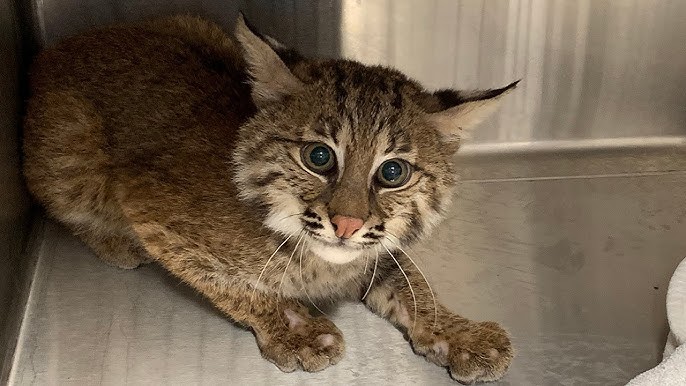





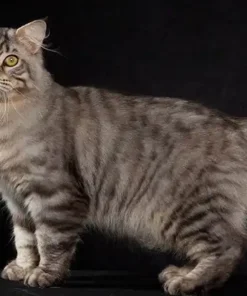
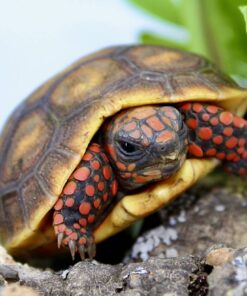
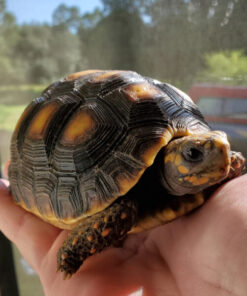
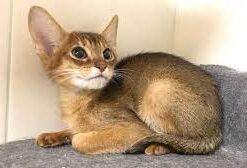



Reviews
There are no reviews yet.